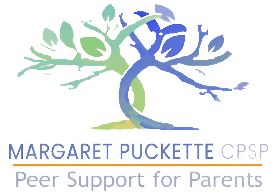I have yet to meet one family with a troubled child that has not felt blamed or judged by close people in their lives: best friends, family members, a religious community, co-workers, even medical and mental health providers. Nothing could be more wrong or more hurtful to the family’s well being. Blame adds emotional burdens on top of what they already face, and can undermine an already shaky hope and faith.
Parents like us are aware that many people are not comfortable around a child with bizarre or extreme behaviors, like our child. We understand this. After all, who else knows more about the stress they create? But it is unacceptable to be blamed or judged by others on our parenting, our character, our child, and/or presumed to be abusing our child. This is simply not true for the overwhelming majority of families with troubled children.
These are some things that have helped caregivers cope with, and overcome, the debilitating effect of judgment and blame.
First, resist defending yourself; it will only attract more unwanted attention and disagreement. You don’t have the time or emotional energy to teach someone who resists and challenges everything you say with countless questions and misinformation. Avoid people like this (even friends and family!).
Second, actively seek out supportive people who take the time to listen, just listen. You need as large as possible a network of compassionate people around you. Stop and think about this, you have many around you already. They may be waiting in the wings, at a polite distance so as not to interfere or add to your stress. If you think you can trust someone, ask them to be your friend. You will be surprised at how many people are out there who have a loved one with a mental or emotional disorder, and how many are willing to help because they completely understand what you’re going through.
Third, politely and assertively say thanks but no thanks. If judgmental people ask why you haven’t contacted them or returned calls, tell the truth, also without blame or judgment. “Our situation is not good, but we are getting the best professional help, and we have been pulling back to take care of ourselves. Thanks for showing interest, and thanks for your understanding and for giving us space.” No apologies.
There is a curious phenomenon where craziness seems to attract “crazy” people. You must block them from your life. They might be obsessed with a religious, medical, or philosophical belief and want to make your child’s life their cause. If this happens to you, don’t hesitate to end contact with anyone that wants to entangle themselves in your lives without your permission. You are never responsible for meeting another’s needs or fitting their beliefs!
I once had a co-worker who had strong feelings about “natural” health care, who offered a steady stream of articles and comments about what could help my child. I had to firmly insist that if she could find one piece of research proving that her preferred treatments helped even one person with schizophrenia, then I would listen. This ended the unsolicited advice.
Fourth, be prepared to grieve lost connections.
A single mother with a 16-year-old daughter sought help in a support group: “Can someone help me? I need someone to call my sister or mother and tell them that I and [my daughter] are not criminals or sickos. They’ve stopped calling, they refuse to have us over or visit for Thanksgiving and Christmas, and I just want someone else to tell them that she’s fine now because she’s taking meds, and that her behavior is not her fault or my fault.”
Let go of those who blame, and move forward with your priorities. Very often, they eventually turn around and make an effort to understand. Many really do change and apologize for their insensitivity. I’ve experienced this and observed this, but it is not your job to make this happen.
Your criteria for friendship will change. You will find out who your real friends are, and they may not be family members or current friends. Real friends let you talk about feelings without judgment or advice, they are always around to listen, they help out with little things: go out for coffee; call to check in on you; or watch your other kids in a crisis. They may be people you never felt close to before but who have reached out to you with compassion. Accept their help. Don’t be too private or too proud to accept the offer of support. Someday, after you have turned your family’s life around, find another family who needs your support. Make a promise to help others in need, and to give back to the universe.


Great and much needed tips. As parents facing similar problems in most of the cases. But the children can not blamed they even dont know what they are doing.. Coach your child in possible alternatives. Hope neighbors also know this fact well..
Bipolar Disorder, Bipolar Patients, Bipolar Symptoms, Bipolar Community,
Manic-Depressive, Mania, Mood Swings, Mood Stabilizers, Mental Health Evaluations, Episodes